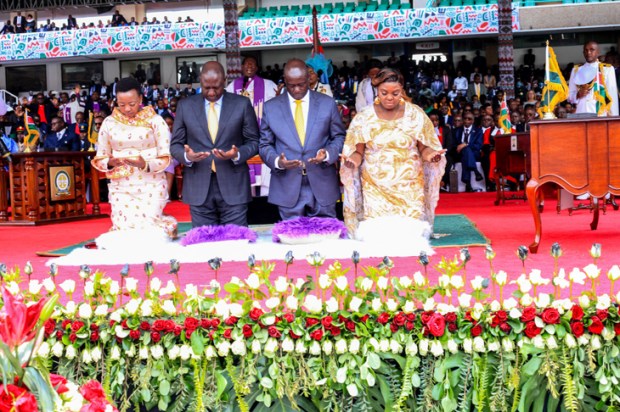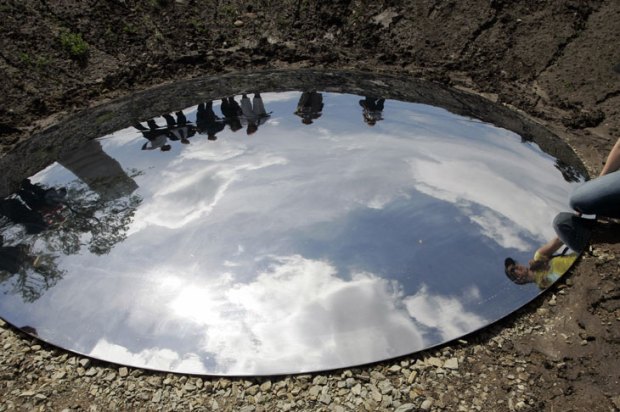Australia is a long way from the US. I left Washington on 4 July of all dates for Melbourne, there to deliver the B’nai B’rith Anti-Defamation Commission’s annual Gandel lecture, a great privilege for me. Especially at a time of enormous turmoil in the Middle East and elsewhere, I wanted to explain America’s ongoing abdication from international responsibility, and why, hopefully, it was only temporary (although it will last all eight years of Barack Obama’s presidency).
Melbourne’s quality-of-life reputation seemed well deserved, and I met several of its leaders, including John and Pauline Gandel, Mark Leibler (chair of the Australia/Israel & Jewish Affairs Council) and Dvir Abramovich (chair of the Anti-Defamation Commission). Later, in Canberra, I was privileged to tour Australia’s National Gallery, where Prime Minister Abbott hosted visiting Japanese Prime Minister Abe for lunch. The Gandels’ philanthropy is a major plus for the gallery, and for all Australians.
Perhaps inevitably, though, my thoughts drifted back to my first visit to Australia, almost exactly ten years before. I was then George W. Bush’s Under Secretary of State for arms control and international security, in essence the administration’s chief weapons and anti-proliferation negotiator, trying to make progress on an effort subsequently known as the Proliferation Security Initiative. PSI, one of Bush’s principal contributions to global non-proliferation efforts, was intended to stop international trafficking in weapons and materials of mass destruction. The idea was for like-minded, co-operating nations to use their military, intelligence and law-enforcement assets to interdict shipments of nuclear, biological or chemical weapons (or their component parts) before the WMDs reached their intended recipients, whether rogue states or terrorists like al-Qa’eda. Since PSI was formally launched in 2003, it has proven enormously successful against efforts by North Korea, Iran and their ilk, although much of its work and its major successes have remained highly classified. Secrecy is obviously necessary, but it does have the collateral effect of lulling some citizens in democratic countries into complacency about the risks we increasingly face from global proliferation.
Complacency, however, was never the mark of either John Howard or Alexander Downer, who were strong allies of the US and early and vigorous enthusiasts of PSI. Howard was in Washington on 10 September 2001, commemorating the Anzus treaty’s 50th anniversary, and was still there when al-Qa’eda attacked the next day. He instantly pledged support for our collective efforts against international terrorism. Howard, Downer and their colleagues in Australia’s government knew that, as bad as 9/11 was, it would be far worse if terrorists ever got their hands on WMDs.
In fact, Downer and his staff worked hard and constructively in the negotiations to shape and ultimately launch PSI, and Downer himself did America and PSI an enormous favour at one critical point. We were determined that PSI not become a bureaucratic international organisation, burdened with useless staff and endless, unproductive meetings. To that end, we resisted efforts by the UN, the EU and even Nato (which over time had unfortunately grown increasingly bureaucratic, probably because of its proximity in Brussels to EU headquarters). We wanted only sovereign nations to be PSI members, something Howard and Downer understood instinctively. As one British diplomat put it, PSI was to be ‘an activity, not an organisation.’
As we pursued this US initiative, our ‘helpful’ European friends decided to hold an important PSI negotiation session in a European capital. How thoughtful of them to arrange a venue for our initiative, and, just coincidentally of course, in a city most convenient for them. Of course, we all enjoy strolling Paris’s wide boulevards, or admiring Rome’s incomparable ruins, or meeting in iconic diplomatic venues like Geneva or Vienna. After a while, though, it becomes too comfortable. And too European in result, as well as location. Instead, I decided we could help prove PSI was not business as usual by holding our next meeting in Australia, so everybody could journey to the Pacific. Downer quickly suggested Brisbane, near his constituency, and that’s where we met, thus finessing the ‘helpful’ Europeans. Brisbane was the perfect tonic, as even they came to admit.
The Europeans were just as jet-lagged in Brisbane as Aussies usually are in Europe (and, to be honest, so were the Americans), but the net result was outstanding. Brisbane was a wonderful location, not for vacationing on this visit, but for some vigorous but productive negotiations that took the PSI concept much closer to reality. And watching those jet-lagged Europeans, far away from their comfort zone, more than compensated for my own trip across the International Date Line. Before the 2003 Brisbane negotiations, I spent a day in Canberra conferring with Aussie officials, and also did so on this trip, meeting Julie Bishop, the current Foreign Minister. We talked about a wide range of international issues, as well as domestic politics in Australia and the US. I was impressed with her command of the global problems she faces every day, and her directness, a national characteristic that Aussies and Yanks share. Even though we had never met before, I sensed immediately that Australia’s foreign relations were in good hands. Too bad I can’t say the same about the US.
Got something to add? Join the discussion and comment below.
Get 10 issues for just $10
Subscribe to The Spectator Australia today for the next 10 magazine issues, plus full online access, for just $10.
John R. Bolton, a former US ambassador to the UN, is a senior fellow at the American Enterprise Institute in Washington.
You might disagree with half of it, but you’ll enjoy reading all of it. Try your first month for free, then just $2 a week for the remainder of your first year.













Comments
Don't miss out
Join the conversation with other Spectator Australia readers. Subscribe to leave a comment.
SUBSCRIBEAlready a subscriber? Log in